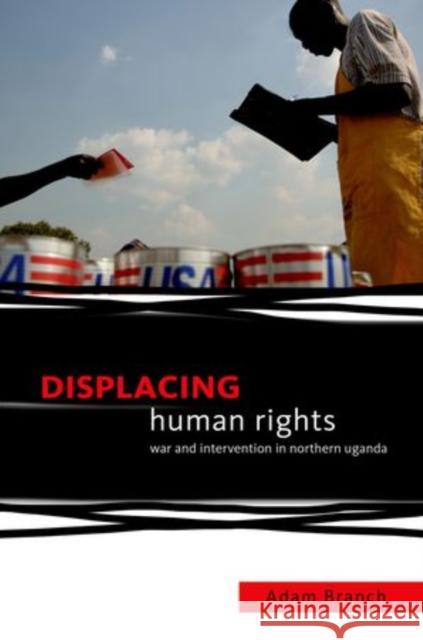Displacing Human Rights: War and Intervention in Northern Uganda » książka
Displacing Human Rights: War and Intervention in Northern Uganda
ISBN-13: 9780199351299 / Angielski / Miękka / 2013 / 336 str.
Today, Western intervention is a ubiquitous feature of violent conflict in Africa. Humanitarian aid agencies, community peacebuilders, microcredit promoters, children's rights activists, the World Bank, the International Criminal Court, the U.S. military, and numerous others have involved themselves in African conflicts, all claiming to bring peace and human rights to situations where they are desperately needed. However, according to Adam Branch, Western intervention is not the solution to violence in Africa but, instead, can be a major part of the problem--often undermining human rights and even prolonging war and intensifying anti-civilian violence. Based on an extended case study of Western intervention into northern Uganda's twenty-year civil war, and drawing on Branch's own extensive research and human rights activism there, this book lays bare the reductive understandings motivating Western intervention in Africa, the inadequate tools it insists on employing, its refusal to be accountable to African citizenries, and, most important, its counterproductive consequences for peace, human rights, and justice. In short, Branch demonstrates how Western interventions undermine the efforts Africans themselves are undertaking to end violence in their own communities. The book does not end with critique, however. Motivated by a commitment to global justice, it proposes concrete changes for Western humanitarian, peacebuilding, and justice interventions as well as a new normative framework for re-orienting the Western approach to violent conflict in Africa around a practice of genuine solidarity.
"A key strength of the book is its ability to analyse and reveal common patterns in seemingly disparate and complex empirical instances of counterproductive human rights interventions in Uganda. ... T]his book should be required reading for all those working on various themes in Africa today."--The Journal of Modern African Studies "This book provides a pessimistic, but much needed, critique of the history of foreign intervention in Northern Uganda. ... Responsible discussions of foreign policy must consider the ways in which 'great power politics' can hurt people in the name of protection; this book is an excellent place to start that discussion." --The Christian Science Monitor










